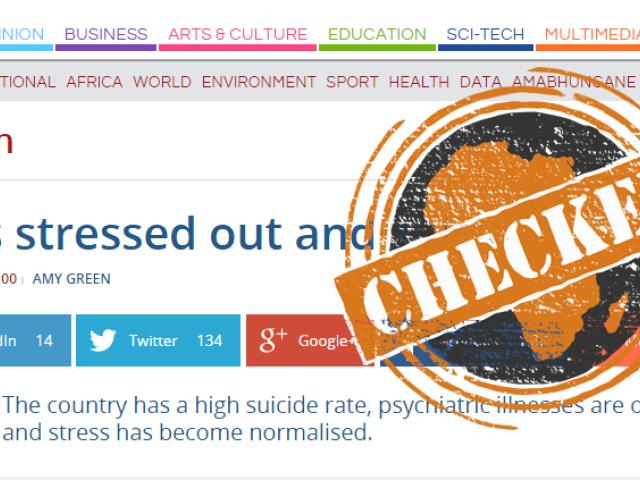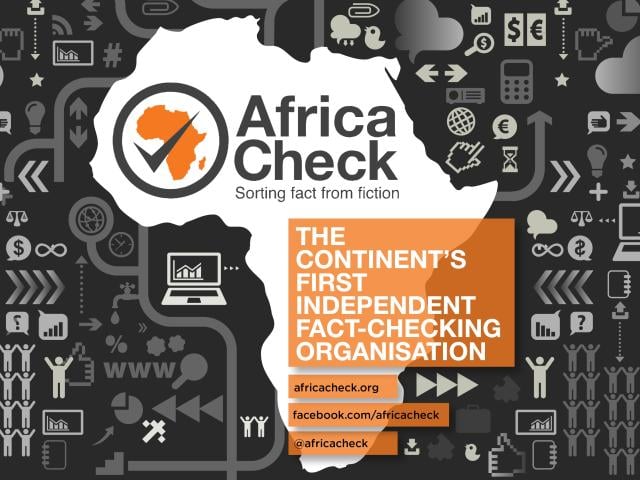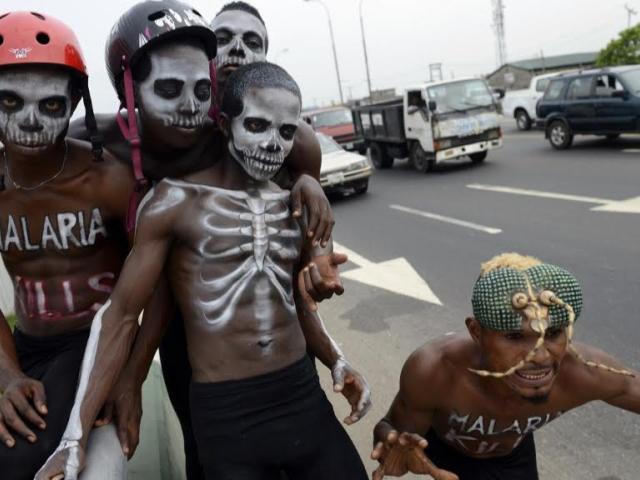This article is more than 6 years old
A 19-year-old woman reportedly jumped to her death in the South African suburb of Braamfontein. Media reports suggest that the university student was encouraged by people on the ground.
How many people die due to suicide each year in South Africa? Where does the country rank globally? And who is most at risk? Here are 5 facts on the sad extent of suicide in South Africa.
Statistics South Africa’s 2015 Mortality and Causes of Death report estimated that 484 deaths were due to self-harm. The statistics are based on death certificates from the department of home affairs, but experts caution that suicide deaths are under-reported on these forms.
South Africa’s Medical Research Council used post-mortem data to calculate a more accurate estimate as part of their 2012 Burden of Disease study, the most recent available. This placed the number of deaths by suicide at 6,133 in 2012 - compared to fewer than 500 for the same year captured on death certificates.
The vast majority of suicides victims in South Africa are male. In 2012, 5,095 men of all ages died due to suicide - equalling nearly 14 each day. This is lower than the frequently reported statistic that 18 men die due to suicide every day in the country.
The male death rate for suicide was 21 per 100,000 people, over 5 times higher than the female death rate by suicide of 4.
Suicide was the fourth leading cause of death for young people aged 15-24 in South Africa in 2012. That year, 1,665 young people died as a result of suicide.
AIDS-related illnesses were the leading cause of death (6,822 deaths), followed by interpersonal violence (5,359) and road injuries (2,950).
It is often reported that South Africa has the “eighth-highest suicide rate in the world”. The statistics don’t back this claim up, however.
The World Health Organization (WHO) estimated that there were 12.3 deaths by suicide for every 100,000 people in South Africa in 2015. At this rate, South Africa didn’t even feature in the top 50.
It’s important to note that the WHO strongly advises against drawing any international comparisons using suicide rates. This is because suicide can be under-reported to varying degrees in different countries.
A racial breakdown of the Medical Research Council’s suicide statistics reveals that white men have the highest suicide rate in the country.
For every 100,000 white men in South Africa in 2012, 30 white men died as a result of suicide. This was 2.5 higher than the national suicide death rate of 12 and 1.4 times higher than the national male suicide rate.
Edited by Anim van Wyk
Additional reading:
https://africacheck.org/reports/does-s-africa-rank-8th-in-the-world-by-suicide-rate/
https://africacheck.org/spot-check/is-suicide-the-cause-of-1-in-10-unnatural-teen-deaths/
https://africacheck.org/factsheets/factsheet-africas-leading-causes-death/
How many people die due to suicide each year in South Africa? Where does the country rank globally? And who is most at risk? Here are 5 facts on the sad extent of suicide in South Africa.
6,133 suicides in 2012
Statistics South Africa’s 2015 Mortality and Causes of Death report estimated that 484 deaths were due to self-harm. The statistics are based on death certificates from the department of home affairs, but experts caution that suicide deaths are under-reported on these forms.
South Africa’s Medical Research Council used post-mortem data to calculate a more accurate estimate as part of their 2012 Burden of Disease study, the most recent available. This placed the number of deaths by suicide at 6,133 in 2012 - compared to fewer than 500 for the same year captured on death certificates.
14 men all of ages died by suicide every day
The vast majority of suicides victims in South Africa are male. In 2012, 5,095 men of all ages died due to suicide - equalling nearly 14 each day. This is lower than the frequently reported statistic that 18 men die due to suicide every day in the country.
The male death rate for suicide was 21 per 100,000 people, over 5 times higher than the female death rate by suicide of 4.
Suicide is the 4th leading cause of death for young people
Suicide was the fourth leading cause of death for young people aged 15-24 in South Africa in 2012. That year, 1,665 young people died as a result of suicide.
AIDS-related illnesses were the leading cause of death (6,822 deaths), followed by interpersonal violence (5,359) and road injuries (2,950).
SA not ranked 8th globally for suicide rate
It is often reported that South Africa has the “eighth-highest suicide rate in the world”. The statistics don’t back this claim up, however.
The World Health Organization (WHO) estimated that there were 12.3 deaths by suicide for every 100,000 people in South Africa in 2015. At this rate, South Africa didn’t even feature in the top 50.
It’s important to note that the WHO strongly advises against drawing any international comparisons using suicide rates. This is because suicide can be under-reported to varying degrees in different countries.
White men have highest suicide rate
A racial breakdown of the Medical Research Council’s suicide statistics reveals that white men have the highest suicide rate in the country.
For every 100,000 white men in South Africa in 2012, 30 white men died as a result of suicide. This was 2.5 higher than the national suicide death rate of 12 and 1.4 times higher than the national male suicide rate.
Edited by Anim van Wyk
Additional reading:
https://africacheck.org/reports/does-s-africa-rank-8th-in-the-world-by-suicide-rate/
https://africacheck.org/spot-check/is-suicide-the-cause-of-1-in-10-unnatural-teen-deaths/
https://africacheck.org/factsheets/factsheet-africas-leading-causes-death/





Add new comment